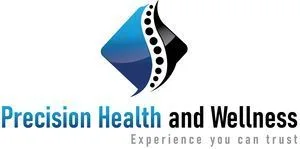In 2020, nearly 4.7 million passenger cars were involved in U.S. traffic crashes, accounting for 52 percent of the overall total (National Highway Traffic Safety Administration, 2022). People involved in a car accident can experience significant injuries such as:
- Whiplash
- Disc injuries
- Concussions
- Ligament sprains
- Muscle strains
- Headaches
- Neck and back pain
- Contusions
- Fractures
Car accidents don’t just result in physical injuries but can produce increased levels of stress and make performing regular daily activities or work-related activities significantly more challenging, and at times even unbearable. While injuries related to a motor vehicle accident can seem overwhelming for a person, there are options available to assist in the recovery of these injuries.
Chiropractors are doctors specializing in the diagnosis, treatment, and management of mechanical disorders involving the musculoskeletal system, especially concerning the spine. A chiropractor will most often manage injuries involving the intervertebral discs, muscles, ligaments, joints, and nerves. As it relates to motor vehicle accidents, these structures tend to be the most common sites of injuries, making a chiropractor the premier provider entrusted with the diagnosis, management, and treatment of these injuries.
Chiropractors tend to take a holistic, non-pharmaceutical approach to the treatment of musculoskeletal injuries. Common treatment methods administered in an evidence based, patient centered chiropractic office might include:
- Spinal decompression/traction
- Manual therapy
- Massage
- Cupping
- Therapeutic exercise
- Electric muscle stimulation
- Low level laser therapy
- Therapeutic ultrasound
- Chiropractic adjustment/spinal manipulation
- Nutritional/lifestyle modification
- Acupuncture/dry needling
Chiropractic management of these common musculoskeletal injuries not only helps to improve pain, but more importantly restore function to allow that person to get back to their life without significant interference of pain when performing their regular daily activities, hobbies, or work.
So why consider visiting a chiropractor if you’ve been injured in a motor vehicle accident?
-
Reduced risk of invasive surgery
- o Reduced odds of surgery were observed for those whose first provider was a chiropractor. 42.7% of workers with back injuries who first saw a surgeon had surgery, in contrast to only 1.5% of those who saw a chiropractor (2).
-
Reduced reliance on medication
- According to the CDC, overdoses involving opioids killed over 45,000 people in 2019. 32% of those deaths involved prescribed opioids (3).
- Excessive Advil, Aleve, and Ibuprofen usage doesn’t come without risk. Studies show that side effects of long-term NSAID (Non-steroidal anti-inflammatory drugs) result in 16,500 deaths annually (4). Moreso, these drugs have significant side effects on the lining of our digestive tract, especially with daily chronic usage.
-
Reduced healthcare costs
-
Between 1994-2004 lower back pain and associated conditions related to
Medicare expenditures in the United States have significantly increased
(5).
- 629% for epidural steroid injections
- 423% for opioid medication
- 307% for MRI
- 220% for lumbar spine fusion surgeries
- Despite these dramatic increases in healthcare spending, we are not seeing an associated improvement in outcomes of spine related disorders. Unfortunately, we actually see the opposite as chronic pain and disability associated with spine related disorders continues to rise.
-
Between 1994-2004 lower back pain and associated conditions related to
Medicare expenditures in the United States have significantly increased
(5).
If you or somebody you know has been unfortunately injured because of a motor vehicle accident, don’t hesitate to schedule your chiropractic consultation!
References
- https://cdan.dot.gov/
- Keeney BJ, Fulton-Kehoe D, Turner JA, Wickizer TM, Chan KC, Franklin GM. Early predictors of lumbar spine surgery after occupational back injury: results from a prospective study of workers in Washington State. Spine (Phila Pa 1976). 2013 May 15;38(11):953-64. doi: 10.1097/BRS.0b013e3182814ed5. PMID: 23238486; PMCID: PMC4258106.
- https://www.cdc.gov/index.htm
- McEvoy L, Carr DF, Pirmohamed M. Pharmacogenomics of NSAID-Induced Upper Gastrointestinal Toxicity. Front Pharmacol. 2021 Jun 21;12:684162. doi: 10.3389/fphar.2021.684162. PMID: 34234675; PMCID: PMC8256335.
- https://www.medicare.gov/
